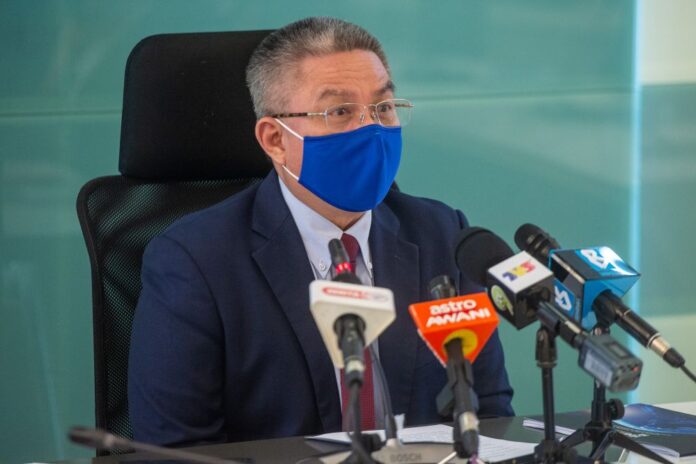Science, Technology and Innovation Minister Datuk Seri Dr Adham Baba said DSNN, which comprised four strategic thrusts and supported by 15 strategies and 32 initiatives across the various economic sectors, would provide a sustainable nanotechnology ecosystem. — Picture by Shafwan Zaidon
PUTRAJAYA, Nov 15 — The National Nanotechnology Policy and Strategy (DSNN) 2021-2030 was launched today to create a dynamic and progressive nanotechnology ecosystem as well as highlight the potential of nanotechnology to solve various challenges faced by the country.
Science, Technology and Innovation Minister Datuk Seri Dr Adham Baba said DSNN, which comprised four strategic thrusts and supported by 15 strategies and 32 initiatives across the various economic sectors, would provide a sustainable nanotechnology ecosystem.
“DSNN will ensure more efficient use of resources while optimising research costs as well as technology and product development for the progress of Keluarga Malaysia (Malaysian Family),” he said when launching the DSNN virtually today.
The four thrusts of DSNN are strengthening ecosystem and governance; encouraging research and development; increasing commercialisation and driving the industry; and strengthening standards, safety and regulations.
Dr Adham said DSNN highlights the potential of nanotechnology to solve the country’s problems such as dependence on foreign workers in the manufacturing, construction and agriculture sectors; environmental pollution; renewable energy generation; agricultural products and food security.
He added that the Covid-19 pandemic has proven nanotechnological advances in the development of the Pfizer-BioNTech vaccine by applying lipid nanoparticles that protect and carry the Messenger Ribonucleic Acid (mRNA) to the desired cells in the human body.
Dr Adham said the implementation of DSNN would address the key challenges of the nanotechnology field in Malaysia, namely the commercialisation of technology or products, and standards and certifications for nanotechnology products in the market.
He added that the government has taken steps to explore opportunities through nanotechnology since 2006 by introducing and implementing the National Nanotechnology Initiative.
After 15 years of implementation, the initiative has made several outstanding records such as through the National Graphene Action Plan 2020 which activated over 50 projects, created 2,000 high-value jobs and contributed up to RM3 billion in company revenue in the first five years of commercialisation, he said. — Bernama


